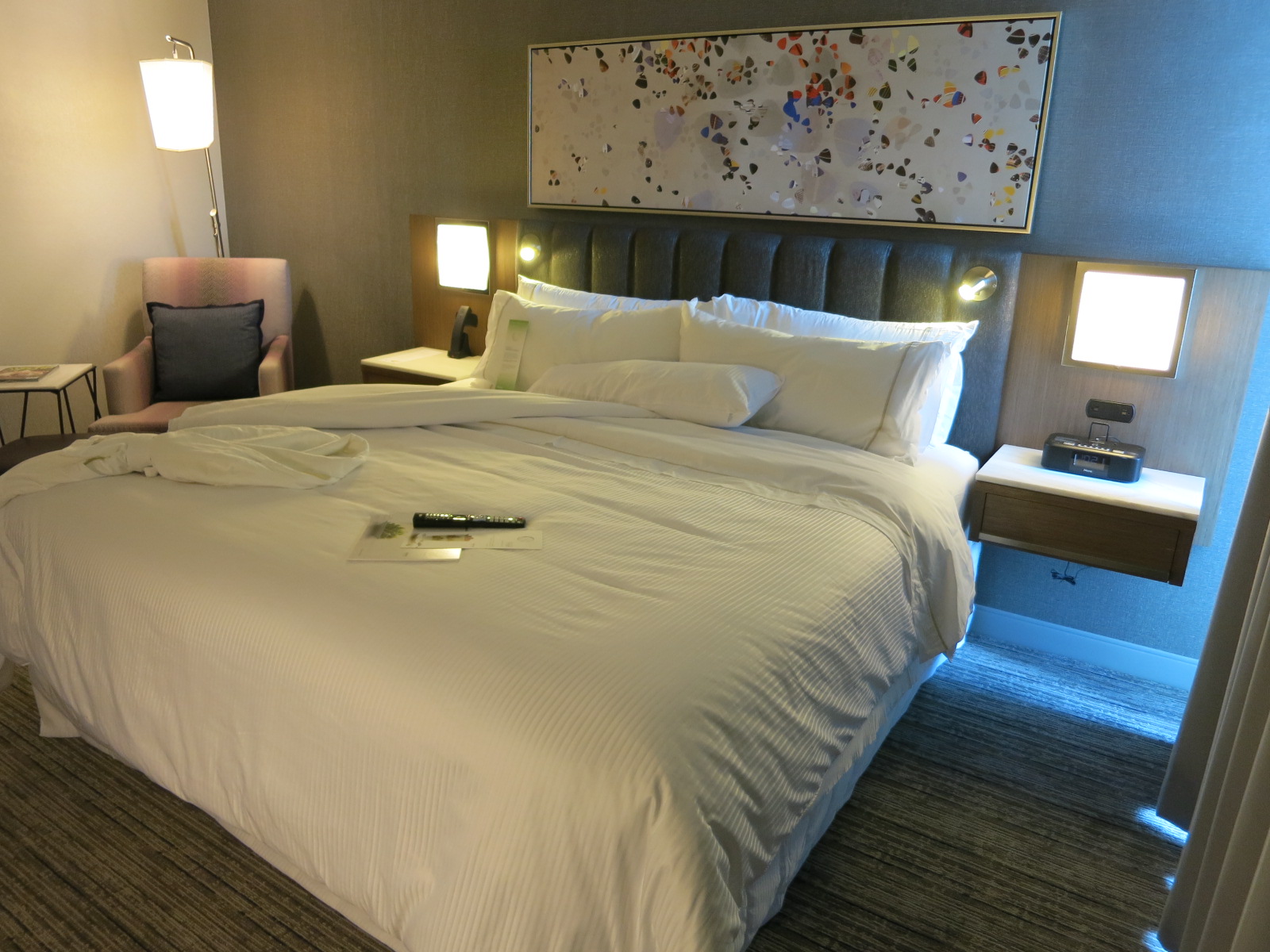Barry Sternlicht, who founded Starwood Hotels, reacquired the name that Marriott retired after buying the company. And he relaunched it. Now, Starwood’s major hotel brand has relaunched its loyalty program.
The Birth Of Starwood
Barry Sternlicht acquired a number of hotel brands. Westin hotels, founded in 1930, was sold to Starwood in 1994. Westin’s first hotel was in Washington. Sheraton’s first hotel dates to 1937. It was acquired by ITT Corporation (1968) and merged with their Statler Hotels in 1972, and the brand was sold to create Starwood.
They launched W Hotels and reintroduced the storied St. Regis brand. In 1999, Starwood launched Starwood Preferred Guest, tying the brands together and bringing together Westin Premier and Sheraton Club International. Westin became a preferred chain with its “Heavenly Bed” which Starwood later leveraged across brands with the introduction of the Sheraton Sweet Sleeper and Four Points Four Comfort bed, and the branding with the “Heavenly Bath” whose main innovation was a curved shower rod.

Starwood was lifestyle hotels and innovated in loyalty: they were first to market with “true redemption” (any standard room was available for redemption on points) and suite upgrades for frequent guests, if available at check-in. Starwood also innovated with guaranteed late checkout.

Extreme Wow Suite Living Room At The Former W San Diego
Eventually Hyatt added suites and late check-out, and Marriott added late check-out only after acquiring Starwood. No capacity controls on standard room awards became commonplace throughout the industry. In 2012, Starwood added breakfast (taking a cue from Hilton, something Hyatt had already done but Marriott had not) and launched innovative loyalty features like 24-hour check-in (“Your24”) and Ambassador service. Starwood’s customer service, exemplified online by William Sanders, the ‘Starwood Lurker’, was consistently top of industry.
2016 Sale To Marriott Ruined Both Companies
Starwood was unique, and hit far above its weight. It delivered lifestyle hotels and earned a revenue premium, and took care of guests. The chain owned and largely protected the brand (out of U.S. Sheraton and Four Points, perhaps). Standards were enforced, at great expense to owners. W Hotels was famous for imposing rigorous style guidelines and purchasing requirements. And when a customer had a complaint, it was common for the chain’s customer service to compensate the customer with a free night’s worth of points – and bill the property.
The chain almost didn’t get sold to Marriott.
- Hyatt was arguably the high bidder, but the complex deal structure got in the way. The Pritzker family’s shares have 10 times the voting rights of ordinary shares. While Hyatt was going to restructure their stock in order to do the Starwood deal, the restructure wasn’t really going to give this away (privileging shares held for long periods with extra voting rights).
- China’s Anbang Insurance was also outbidding Marriott consistently but eventually backed out.
Marriott used to be known for consistency. It didn’t promise much, but it always delivered. That changed with the Starwood acquisition, where it promised everyone everything. Owners were promised lower costs. Guests were promised they’d love everything about the combination. Complaints were dismissed by Marriott’s CEO as “noise around the edges” and whenever hotels let down a customer, the chain’s customer service either backed the hotel or abdicated completely. Failure to deliver became the sine qua non of the brand.
Now, under CEO Anthony Capuano, the mantra is “net rooms growth.” They try to be as owner-friendly as possible, making promising to customers but enforcing relatively little, in order to attract more property and rooms to their brands. The only thing of value they own is those brands, and they’re sacrificing brand value for short-term growth. In other words, they’ve ruined both Marriott and Starwood.
Starwood Relaunches Loyalty Program For Largest Brand
Sternlicht has three hotel brands today: Baccarat, 1 Hotels, and Treehouse. 1Hotels, with a dozen properties, is the largest and they’ve relaunched their loyalty program.
And as Skift‘s Sean O’Neill puts it, they’ve “ditched points for tree-planting and charity donations, betting eco-conscious guests value impact over free stays.”
Instead of accumulating points toward free stays, members receive a planted tree through the Arbor Day Foundation when they join. The brand also donates 1% of each member’s spending to environmental nonprofits rather than offering redeemable rewards.

1Hotel Brooklyn Bridge
According to their Chief Marketing Officer, “the opportunity wasn’t in points or tiers.” They offer benefits like early check-in, late check-out and upgrades but they replace rebates with donations.
This Is A Huge Disappointment – Even If You want Purpose-Driven Stays
Maybe I’m just not their target market, but my view is that the best way to leverage brand narrative is to do it as an add-on, rather than making guests give up something to get it.
Hotels can earn higher room rates when they tell you a story about who you are, based on where you stay. We all self-deceive, and brands that help us to construct a narrative about ourselves earn a premium for it. That’s much of the wellness trend, and it’s ecoconsciousness.
The problem is that when you replace points with donations, you tell guests they have to give up the tangible rewards they’d receive staying elsewhere. In the simplest model, an executive on a business stay might earn 7% back for their family travel at most chains. So they are effectively paying that 7% out of their own pocket for their stay to give to charity. And 1Hotels is only giving 1%!
A guest is better off staying somewhere else, pocketing the 7%, and using half the savings to donate to a cause they personally prefer over the one that 1Hotels chooses. They’d be donating over 3 times the money, and targeting what they actually care about – without laundering it through 1Hotels’ marketing.
At 1%, and 1Hotels pricing, they should be able to do points and donations. I would bet that this is a swing and miss, and a lost opportunity.


“they’ve ‘ditched points for tree-planting and charity donations, betting eco-conscious guests value impact over free stays.'”
Not me! I don’t stay at hotels or fly planes or buy socks because to donate to charity.
I’ll pick my own charity and get my own tax credit.
Can we stop with this ridiculous climate tax shenanigans?
There are far better and more effective ways to reduce climate emissions and effects.
Stealing from people for “climate justice” is just audacious theft.
I think most of us on here just aren’t the target demographic. I’m guessing most of the 1 Hotel guests, given the price point of the properties, do not care about loyalty programs.
Was so excited till I read no free nights
I hope they enjoy planting their trees lol
I’m out
Is it possible Starwood 2.0 is under some sort of restriction imposed by Marriott not to launch a traditional points-based loyalty program?
I think their hearts are in the right place, but it’s basically just a giant tax donation for them.
Congratulations, Mr. Smith. We planted another tree in your honor. We do value your business. Thank you for participating in our climate cult virtual signal attempt.
I’ve given 1 hotels three tries in three different locations, and honestly, I think I’m ‘done’ trying; they do weird things that end up being too inconvenient; like, sorry, but when you basically don’t have air conditioning but it’s 80 degrees in the room, that’s not gonna work, even for the most wokie-wokes.
I was a Starwood loyal back in the day. I have since given up on hotel loyalty programs completely and buy on price/avails. If they happen to do some good, so be it. This works for me b/c my expectations of hotel chains have been driven thru floor. Excited to see what Starwood has in store.
Going for this? That’s a negative, Ghostrider.
I was a fervent SPG fan because the chain went so far out of their way to provide great value for me. Remember hotels for 2,000 points a night? Or being able to make high status on nights or stays? Or being able to get elite night credit for two rooms? The magic of Starwood was that they made you want to be loyal and I spent a lot of time and money to ensure that I made 50 nights a year come hell or high water.The new program isn’t even a shadow of the original one.
As a Starwood Platinum during the GW Bush Admin years, most of my Starwood hotel stays included free breakfast anyway.
Sorry I may have missed understanding this. So what is the point?
@Gary–when you say that the first Westin Hotel was in Washington, DC, which specific hotel are you talking about? I think you have confused your Washingtons. The first Westin was here in Seattle, according to my memory and confirmed by a quick Internet search.
The name “Westin” is essentially a contraction of Western International, which the Seattle -based company used to be called. Its one-time CEO, Eddie Carlson, is famous around here for having (a) started with the company as a bellboy (which might be why he understood customer service so well) and (b) sketching the design of the Space Needle on a cocktail napkin.
I just thought you ought to know.